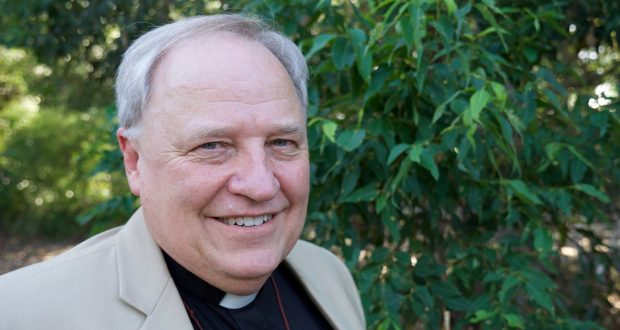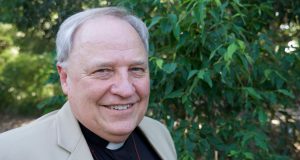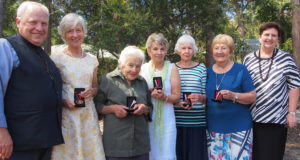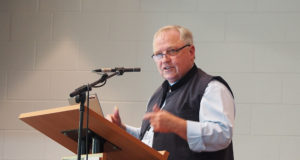My June column was about the opportunities and challenges presented by reflection on the church turning 40. If it is a time to give up that which no longer helps us live life in all its fullness, and to take with us that which still provides such a life, what should we take forward? What should we let go?
There are a few things on my mind we would never want to give up.
We’d never want to give up on the core of our faith—that God was in Christ, reconciling the world to himself, not counting our sins against us, and entrusting to us the message of reconciliation (2 Corinthians 5:19).
There’s still a whole world of exploration of what that means for the church living in the world. I dream of a day when the world comes to the church saying, “We’ve got a problem, we can’t live at peace; you’re the church, you know about reconciliation, can you help us?” That is, our reputation about our life and our work is such that this approach by the world would be a natural thing to happen! How’s that!
We’d never want to give up that we are made in the image of God; that means we have an innate dignity that is given to us independent of personal characteristics like gender, culture, age, etc.
This dignity makes claims on us all: we can’t turn someone into an “other” that degrades that dignity. We can’t stand by and let another’s God-given dignity be denied.
We’d never want to give up that creation is a gift to humanity for which we are responsible as stewards. We not only have a responsibility to the coming generations, we have a responsibility to our creator.
We’d never want to give up an openness to further truth. Our Basis of Union states, “In particular the Uniting Church enters into the inheritance of literary, historical and scientific enquiry which has characterised recent centuries, and gives thanks for the knowledge of God’s ways with humanity which are open to an informed faith.”
We engage with the world with faith and confidence in the faithfulness of Christ.
We’d never give up that Christ is present to the world, in and of his very self, and makes a life-giving difference. For in the beginning and the end of our story, it’s not about us.
 JourneyOnline
JourneyOnline






